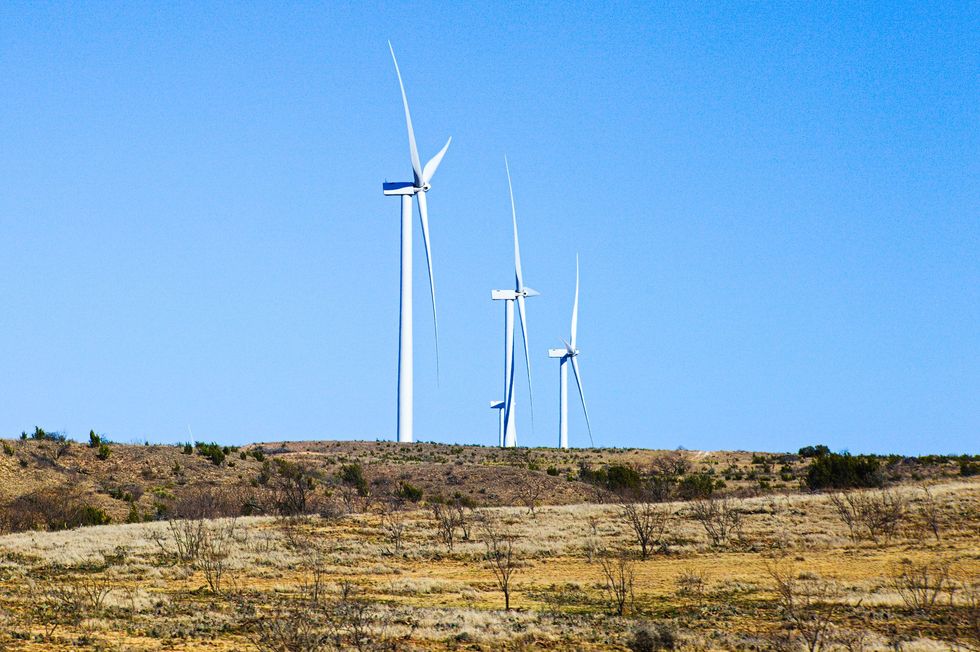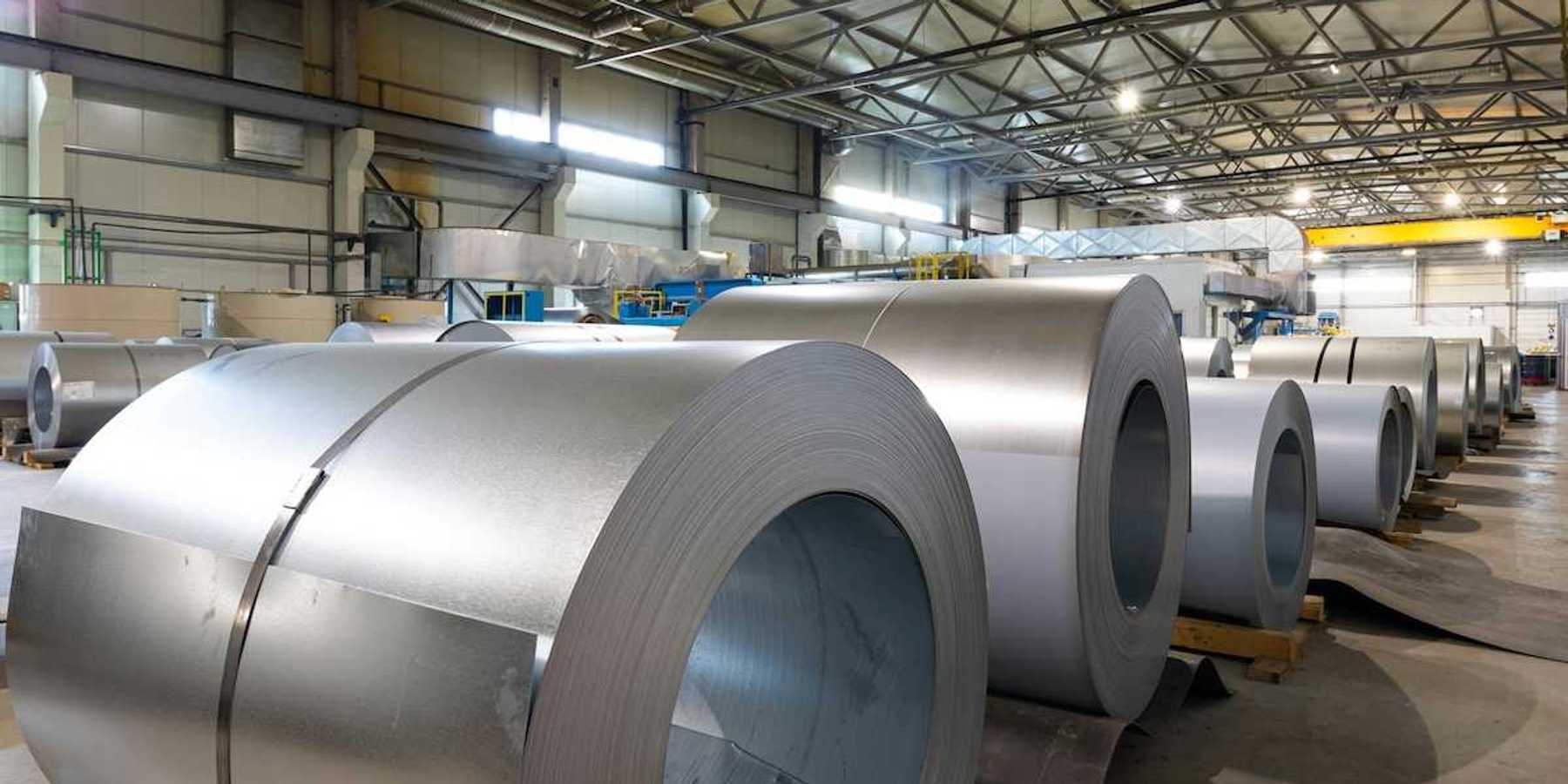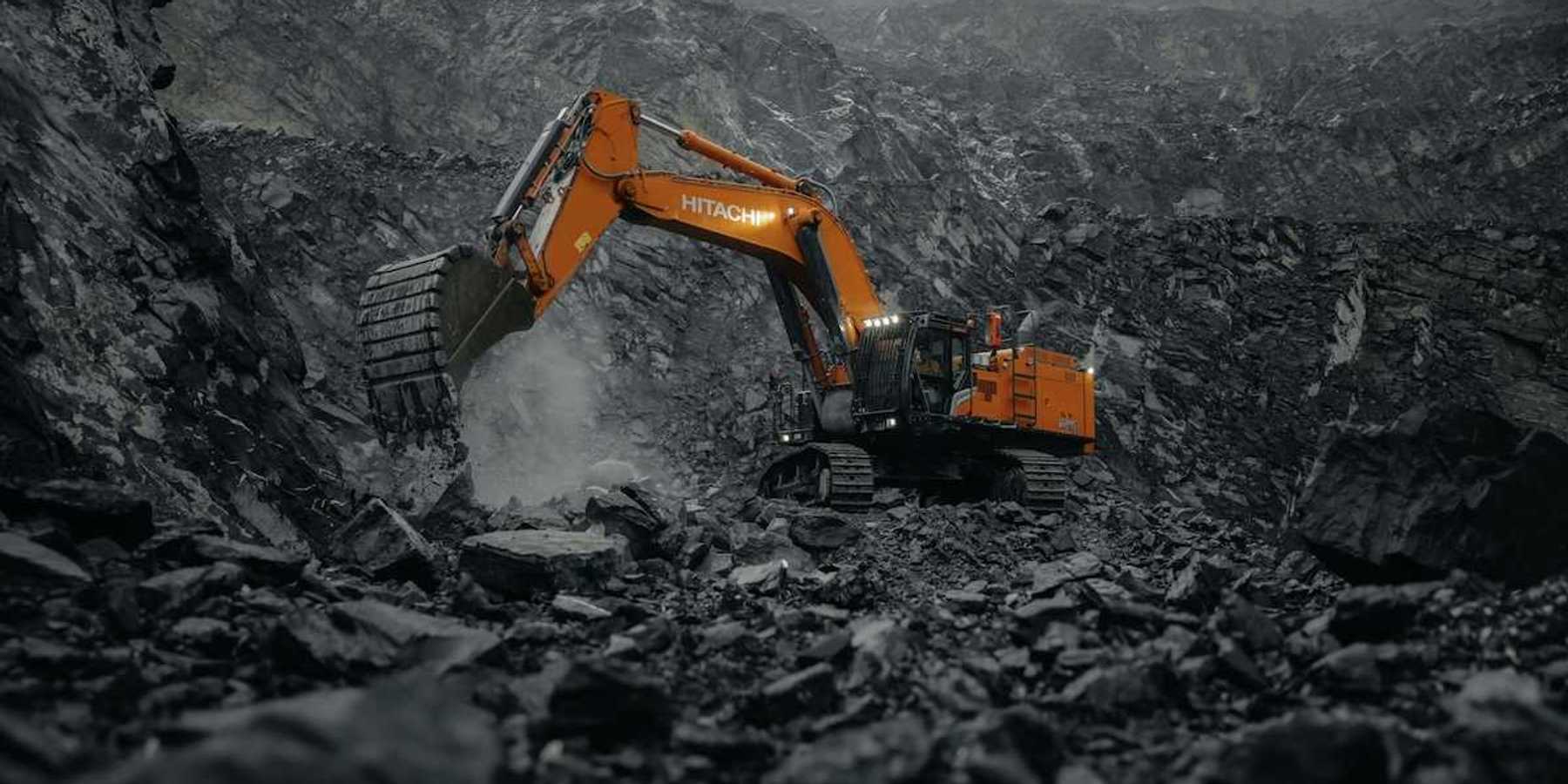
Opinion: House Speaker Mike Johnson’s climate change playbook — deny the science, take the funding
The two-faced charade of climate denial while diving into the pot of federal renewable incentives and tax breaks.
It took no time for Mike Johnson to establish a hefty carbon footprint as new Speaker of the House.
In the first legislative act under his watch, his Republican majority last month passed an appropriations bill that seeks to gut many federal programs meant to fight climate change.
The House bill cuts between $5 billion and $6 billion from last year’s Inflation Reduction Act which passed both houses of Congress without a single Republican vote.
Johnson’s new bill ends rebates for electric appliances, home electrification projects, and training funds for project installation. It eliminates or slashes funding for clean energy and energy efficiency efforts throughout the Department of Energy and defunds a national Climate Corps, modeled after the New Deal era Civilian Conservation Corps. It blocks funding for state net zero programs and tighter building energy codes. It stops the government from factoring in the social cost of greenhouse gases in budgets and environmental reviews.
The legislation also reeks of the manic efforts of an 85% white party to try to bury the nation’s history of systemic racism. Even though Black, Latino, and Indigenous “sacrifice zones” have endured decades of disproportionate pollution from redlining and industrial zoning, the GOP bill bans funding for the White House’s Justice40 initiative to direct the benefits of environmentally related investments to dumped-on communities. Even though those communities now face disproportionate health, flooding and heat exposure risks from climate change, the legislation also withholds funds from the Energy Department to boost diversity in the science workforce (which is sorely needed) and to start a new national laboratory focused on diverse communities.
The House Republicans who crafted the bill so obviously want to unburden themselves from repairing decades of federal, state, and municipal environmental injustice that they threw into the bill a ban on “any program, project, or activity that promotes or advances Critical Race Theory.” This despite the fact that no one has ever mistaken the Department of Energy for a sociology department.
Fortunately, this laundry list of attacks is not likely to survive either the Senate or President Biden’s veto pen. But it exacerbates the party’s hypocrisy on the environment just as European scientists say 2023 is “virtually certain” to be Earth’s warmest year on record.
Denying climate change, but not climate change projects

Texas wind turbines. About 86% of onshore wind farms are in Republican congressional districts.
Credit: Sam LaRussa/flickr
By choosing Johnson to lead them, Republicans in the US House of Representatives hardened their public position as climate change deniers. Despite the fact that 99.9% of peer-reviewed scientific papers agree that climate change is driven by human burning of fossil fuels, Johnson clings to the lie that there “are facts on both sides.” He holds that climate change is due to “natural cycles.”
Despite the United States having spewed a quarter of all the world’s cumulative global warming gases, Johnson blathered at a 2017 town hall: “What about Africa? … they burn huge areas and forests, and they do all these things without impunity.” For the record, of all the continents, Africa produces the least global warming gases—some 4% of the global total. The United States currently emits at least three times more carbon dioxide into the atmosphere than all 54 nations in Africa combined.
One might expect that from a representative of northwest Louisiana who is one of many politicians propped up by the fossil fuel lobby to impede sweeping public support to fight climate change and clean up polluted communities. According to Open Secrets, oil and gas companies led all other industries in campaign contributions to Johnson during his congressional career.
Look closer, and it’s actually a ruse. Johnson’s district is one of many in red states turning neon green with cash from clean energy manufacturing. The latest example comes in a new report on the effects of the Inflation Reduction Act released by the nonpartisan business group E2 (Environmental Entrepreneurs).
The IRA passed without a single Republican vote, with the GOP complaining about “wasteful” federal spending. But Republican-held districts haven’t wasted a moment in chasing the dollars unleashed by the act. The IRA triggered the announcement of nearly 250 projects, primarily for solar and wind energy, electric vehicle manufacturing, and battery storage. So far, the investments add up to about $100 billion. The E2 report says that a full buildout of all the projects within five years could result in 303,000 construction jobs, 100,000 permanent jobs, $110 billion in new worker wages, and $32 billion in local, state, and federal tax revenues.
As Canary Media’s interactive atlas of the E2 report reveals: three-fourths of the $100 billion in current investments—some $73 billion—are being made in states either won in 2020 by former President Donald Trump or where state legislatures are solidly controlled by Republicans. States with at least $10 billion in clean energy investments include Georgia, South Carolina, and North Carolina. This despite the fact that former South Carolina governor and Republican presidential candidate Nikki Haley condemned the Inflation Reduction Act as a “communist manifesto filled with tax hikes and green subsidies.”
Other conservative states with at least $1 billion of clean energy and vehicle projects included Johnson’s home state of Louisiana as well as Alabama, Indiana, Ohio, Oklahoma, Tennessee, Texas, and West Virginia. In Johnson’s very own congressional district, a joint venture between US-based General Electric and Mexican-based Xignux will build electrical transformers for wind farms and solar fields. Johnson hasn’t stopped that project even though he still spouts views about Mexican immigration that echo White supremacists and accuses the Biden administration of the “intentional destruction of our country.”
Climate change hypocrisy
The idea of Republicans hurling political bricks at climate science and stereotyping green subsidies as communist, while their states cash in on progressive energy policies is nothing new. In 2016, the American Clean Power trade association said 86% of onshore wind farms were in Republican congressional districts representing 88,000 jobs and $126 billion in investment over the preceding decade.
Today, the energy data analytic firm Enersection says eight of the top ten congressional districts for onshore wind farm output are in Texas, Oklahoma, Iowa, Wyoming, Kansas and North Dakota. Four of the top five congressional districts for solar power output are also in Republican districts. The top district in the nation for solar is in California, represented by recently ousted House Speaker Kevin McCarthy. But that didn’t stop McCarthy from blasting the Inflation Reduction Act for alleged “green giveaways for companies that distort the market.”
Just imagine how much stronger our position would be in the fight against climate change and the effort to clean up communities and boost the economy if House Speaker Mike Johnson and his colleagues would ever drop the two-faced charade of climate denial while diving unabashedly into the pot of federal renewable incentives and tax breaks.
When progressives on Capitol Hill proposed a Green New Deal, Johnson chaired a Republican Study Committee “analysis” that blasted the wind and solar energy as an “impossible investment” that would usher in “a new socialist society in America.” Yet, all the while, the steel foundations for the nation’s first offshore wind farm, the five-turbine project off Block Island, Rhode Island, were designed and manufactured in Johnson’s Louisiana by oil and gas rig engineers and fabricators.
Meanwhile, the $5 billion or $6 billion that Johnson’s party want to claw back from the IRA is peanuts compared to the record number of 24 climate weather and climate disasters in 2023 that have cost the nation at least $1 billion each, according to the National Oceanic and Atmospheric Administration. In the 1980s, such disasters cost the nation an average of $21.4 billion per year in adjusted dollars. In the last three years, they have averaged $152 billion a year—seven times more.
Perhaps most ironic of all, few states feel this as acutely as Louisiana. The risk of climate disasters in that state is fueling some of the fastest rising rates of home insurance and some of the largest losses of population in the nation. According to a Louisiana State University survey last year, 40% of state residents with homeowner’s insurance, flood insurance, or renter’s insurance reported filing a damage claim within the past two years. The percentage was 57% for residents in the New Orleans area.
Mike Johnson has nothing to say about this. He dares not open his mouth. He and his House colleagues are too busy snapping up federal green programs for their districts while decrying it all in Washington as a communist conspiracy.













